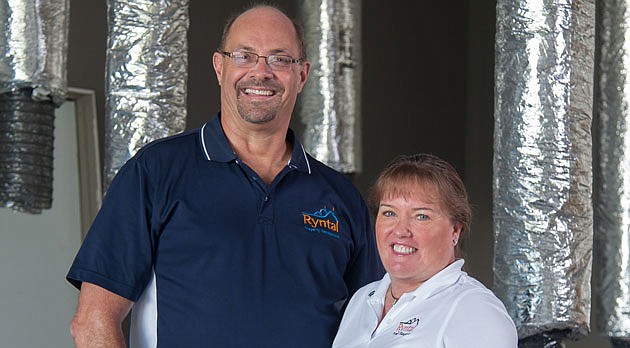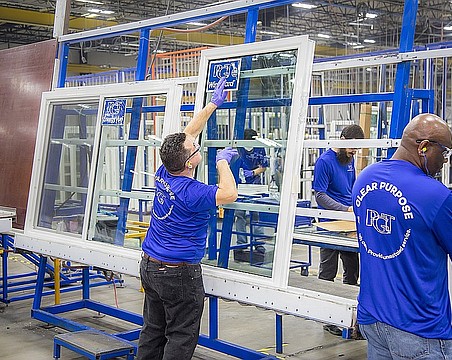A yearlong investment in infrastructure and back-office functions will soon reach its conclusion at Ryntal Property Management. In September, the Sarasota-based company expects to complete an office expansion that will add 2,000 square feet and allow it to hire up to 15 new employees.
And there could be more growth after that.
“Over the next five years we'd like to double the size of the company,” says co-owner Tom Wagenhauser. “And we're building the infrastructure and talent pool to accommodate that.”
Sarasota entrepreneur Chris Abbott founded Ryntal Property Management in 2008. When Wagenhauser came on board a short time later, the company had three properties under management. He and his wife, Kathy, bought Abbott out in 2010 and have since grown the business to about 500 properties under management, and from three to 25 employees.
“We have probably averaged 25% growth in terms of managed units year over year,” says Tom Wagenhauser. “And our revenue growth has mirrored what's gone on with the unit growth.” (He declined to provide more specific revenue numbers.)
Taking a narrow focus has helped drive the firm's success. The company, for one, only manages annual rentals. “The majority of property-management companies around here do annual and seasonal rentals,” says Kathy Wagenhauser. “But it's two different business models. We are the experts of annual rentals.”
Ryntal caters to smaller investors who own single-family homes, condos, townhouses and small apartment complexes in the annual rental market in Sarasota and Manatee counties. Efforts undertaken over the past year or so are helping the company serve those clients more efficiently.
It has been making a push to do as many things digitally as possible, for example. That includes transitioning to electronic lease signings and using an online portal for renters and owners that handles rent collection and disbursement. “Offering these types of services for someone who has only a couple of investment properties is a big thing,” says Wagenhauser.
After realizing it was getting about 10,000 phone calls a month, the company hired a third-party vendor to answer its 24-7 maintenance line and its initial leasing calls. That firm also schedules appointments for the leasing agents. “We want our leasing agents focused on getting the properties leased,” says Kathy Wagenhauser, “not sitting here answering questions about the properties.”
Unlike many other property-management companies, where employees are jacks-of-all-trades, Ryntal's staff members specialize in specific areas, such as leasing, maintenance or accounting. Some are retirees who work part time, an approach that has helped the company find good workers in a tight labor pool. Being willing to train also helps the Wagenhausers hire staff who can meet their customer-service standards.
“A lot of times it isn't a matter of needing to have property-management experience,” says Tom Wagenhauser. “If you've got the right attitude, we'll train you.”
The Wagenhausers don't see growth slowing down, with both demand for and average prices of annual rentals remaining high. (They typically charge 10% of collected rent for their management services.) A lot of younger adults are looking for rentals, as well as baby boomers.
Despite the fact that it's becoming more expensive to buy investment property, the Wagenhausers say people are still buying. Some of Ryntal's owners are on the hunt for small apartment complexes to purchase, something that could lead the company to expand outside its niche area. It would have to be an opportunity that made sense though. The farther a property is from the business's home base, the harder it is to manage it.
The office expansion, meanwhile, will allow the company to move existing staff and add new employees to a space designed for collaboration. It'll use its current 1,600 square feet of space primarily for its maintenance department.
“We're trying to create an environment that's very open for our employees, so they can move about freely and interact with each other,” says Tom Wagenhauser. “Right now it's tough, because we're so crammed in. We've run out of space, but that's a good problem to have.”






